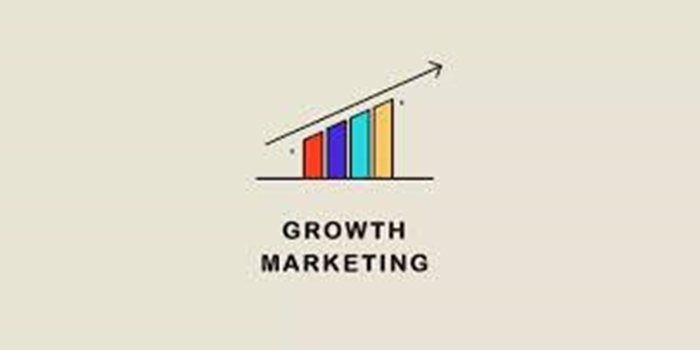In this article, we explained the meaning of growth marketing, the features, the examples and we also outlined the benefits.
Definition
Growth marketing is a customer-centric, data-driven approach to business growth that focuses on long-term sustainability and efficiency. It involves understanding customer needs, testing different strategies, and unceasingly optimizing movements to increase customer gaining, retention, and overall business value.
Features of Growth Marketing:
Data-Driven Decision-Making:
Growth marketing relies heavily on data analysis to inform strategies, understand customer behavior, and identify opportunities.
Experimentation and Testing:
Continuously testing different marketing approaches, channels, and messaging helps uncover what resonates best with the target audience.
Customer-Centricity:
Putting customers at the heart of all marketing efforts ensures that campaigns are relevant and engaging.
Agile and Iterative Approach:
They embraces an agile mindset, allowing for rapid adjustments and continuous optimization in response to changing market conditions.
Holistic Funnel Optimization:
Growth marketing considers the entire customer journey, not just customer acquisition, optimizing all stages of the funnel.
Focus on Long-Term Growth:
Growth marketing aims to create sustainable and scalable growth, not just short-term gains.
Customer Retention:
It emphasizes customer retention and loyalty, as happy and loyal customers are more likely to make repeat purchases and recommend the business.
Cross-Channel Marketing:
They utilizes various channels to reach diverse user segments and maximize reach, as explained in Shopify’s blog.
Scalability and Repeatability:
This focuses on creating repeatable and scalable processes that drive marketing outcomes, as highlighted by Built In.
Performance Marketing:
It is often associated with performance marketing, which focuses on generating measurable results for acquiring customers.
Holistic Approach:
The marketing considers all touchpoints between the customer and the business, not just the acquisition phase.
Customer Segmentation:
Growth marketing involves understanding and targeting different customer segments with tailored strategies.
Growth Marketing Examples Include:
Dropbox’s Referral Program:
Dropbox gained significant user growth by offering users extra storage space for each successful referral, incentivizing them to share the service with their networks.
Airbnb’s Referral Program:
Airbnb leveraged a referral program to increase user base and solidify its position in the travel industry, offering travel credits as rewards for referrals.
Email Marketing for Brand Loyalty:
Businesses can use email marketing to create brand loyalty by offering exclusive deals, promotions, or early access to new features to subscribers.
Content Marketing for Lead Generation:
Creating valuable and engaging content (blogs, articles, videos, etc.) can attract potential customers and generate leads, as seen in the inbound marketing strategy of HubSpot.
Optimizing Onboarding:
Streamlining the initial user experience can improve engagement and retention. For example, a company might implement a gamified onboarding process to guide users through the first steps of using their product or service.
Social Media Engagement:
Using social media platforms to build a community, share engaging content, and run targeted advertising campaigns can drive user acquisition and engagement.
Paid Advertising Campaigns:
Utilizing platforms like Google Ads or Facebook Ads to reach target audiences with tailored ads can generate leads and drive sales.
Business Benefit from Growth Marketing:
- Increased Revenue and Sales:
Demand Generation:
The strategies effectively promote a brand, attracting the right audience and increasing interest in products or services, leading to more sales.
Improved Customer Retention:
By focusing on the customer experience and personalization, growth marketing helps retain existing customers and increase their lifetime value.
High-Quality Leads:
It helps businesses generate leads with higher quality, leading to more successful conversions and a higher close rate.
- Customer-Centricity and Loyalty:
Understanding Customer Needs:
This prioritizes understanding and meeting customer needs, fostering a more customer-centric approach to product development and marketing.
Building Customer Relationships:
By focusing on the entire customer journey, growth marketing helps build strong relationships with customers, fostering trust and loyalty.
Personalized Experiences:
it enables businesses to create personalized experiences for customers, increasing engagement and satisfaction.
- Data-Driven Decision Making and Optimization:
Effective Budget Allocation:
Growth marketing helps businesses allocate their marketing budgets more effectively by focusing on the most impactful strategies based on data and testing.
Continuous Improvement:
This emphasizes continuous testing, analysis, and optimization, leading to better results and staying ahead of competition.
Agile and Flexible Strategies:
It allows businesses to adapt quickly to changing market conditions and customer preferences.
- Increased ROI and Efficiency:
Higher Return on Investment:
Growth marketing strategies can lead to a higher return on investment by optimizing campaigns and improving conversion rates.
Scalability:
Once a successful growth strategy is identified, it can be scaled to reach a wider audience without wasting resources.
Cost-Effective Marketing:
By focusing on existing resources and data-driven strategies, growth marketing can be more cost-effective than traditional marketing.
- Enhanced Brand Perception and Awareness:
Building Brand Trust:
It helps build trust and loyalty by providing excellent customer service and consistently meeting customer expectations.
Increasing Brand Awareness:
Growth marketing can help increase brand awareness through various strategies, such as growth hacks and social media engagement.
Improving SEO:
By focusing on data and experimentation, growth marketing can also improve SEO effectiveness, leading to higher rankings on search engines.
Conclusion
Growth marketing is a hyper-focused marketing approach that orders achieving perceptible business growth by employing modern tools and strategies. It differs from traditional marketing by its importance on data-driven decision-making, research, and determinate results across the entire customer development.


